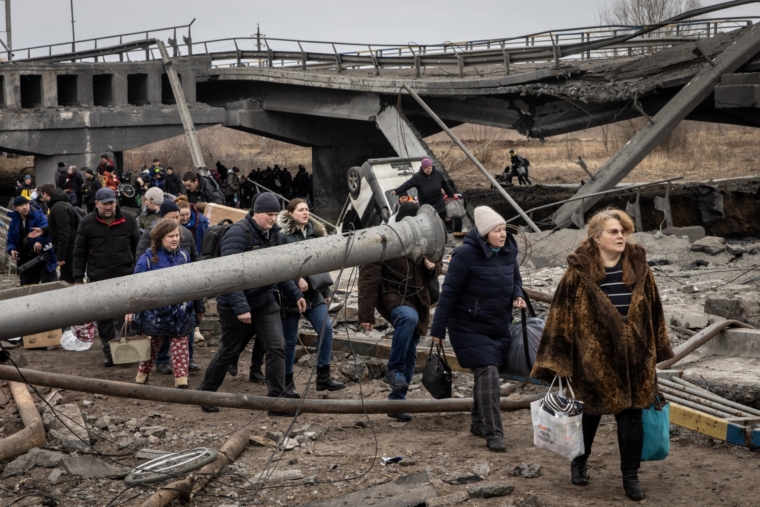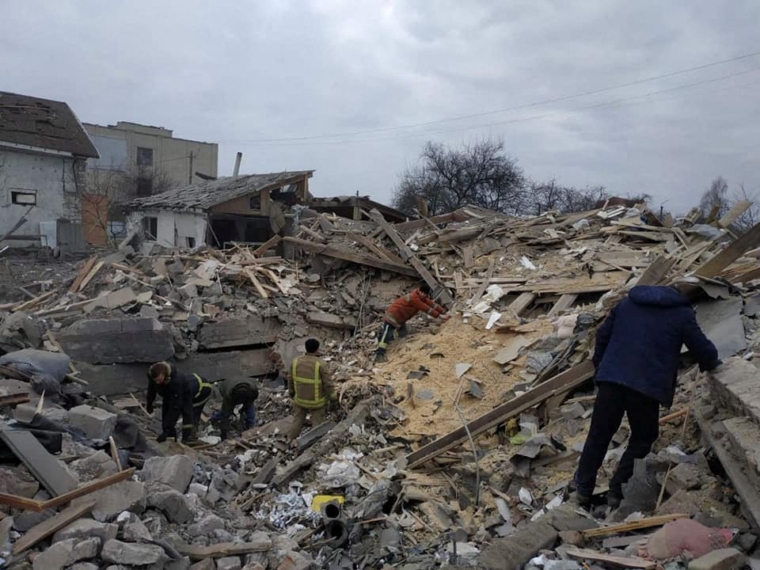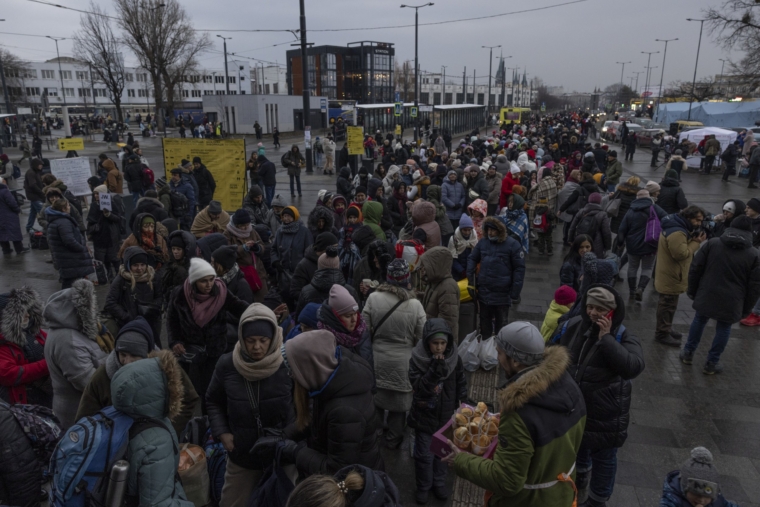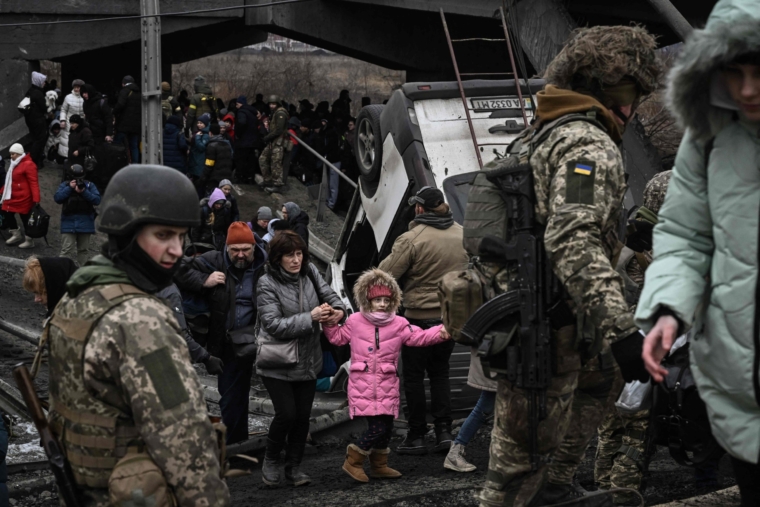Continuous Russian shelling is preventing the evacuation of civilians after failed attempts to reach a ceasefire, officials have warned, while areas in the west of Ukraine are becoming overwhelmed by those displaced from their homes.
Ukraine officials told the International Court of Justice that Russia “is resorting to tactics reminiscent of medieval siege warfare, encircling cities, cutting off escape routes and pounding the civilian population with heavy ordnance.”
Meanwhile, the foreign ministry said continued shelling in Kyiv, Mariupol, Sumy, Kharkiv, Volnovakha and Mykolayiv were preventing civilians from joining the more than 1.5 million who have already been forced from their homes.
It said: “In violation of the previously reached agreements, Russia sabotaged the opening of the humanitarian corridors for the evacuation of the civil population.
“This prevents the safe exit of humanitarian convoys carrying people, delivery of medications and food.”

A third round of talks between the two sides on Monday ended with a top Ukrainian official saying there had been progress towards establishing safe corridors that would allow civilians to escape the fighting.
In one of the most desperate cities, the encircled southern port of Mariupol, more than 200,000 people are trapped with limited water, food and power, while hospitals are facing desperate shortages of antibiotics and painkillers.
In Kharkiv, Ukraine’s second-largest city, heavy shelling slammed into apartment buildings.
“I think it struck the fourth floor under us,” Dmitry Sedorenko said from his Kharkiv hospital bed. “Immediately, everything started burning and falling apart.”
When the floor collapsed beneath him, he crawled out through the third floor, past the bodies of some of his neighbours.

In the Irpin area near Kyiv – which has been cut off from electricity, water and heat for three days – witnesses saw at least three tanks and said Russian soldiers were seizing houses and cars.
Meanwhile, officials in Ukraine’s western-most city Lviv said it was past its capacity to accommodate those displaced.
Mayor Andriy Sadoviy said several hundred thousand people had already passed through Lviv as they headed west seeking safety.
Some 200,000 internally displaced persons are now staying in the city, and 50,000 were going through Lviv railway station daily, he added.
He said: “We understand there will be another wave (of refugees) … and call on international humanitarian organisations to come here and help.”

More on Russia-Ukraine war
The Russian foreign ministry claimed on Monday morning that evacuation routes would be set up from cities bombarded by shelling, including the capital Kyiv as well as Kharkiv, Mariupol and Sumy.
However, Russia’s unilaterally proposed evacuation routes led to Russia and Belarus, rather than to “safe” neighbouring countries.
A spokesperson for Ukrainian President Volodymyr Zelensky has called the proposal “completely immoral” and accused Russia of attempting to “use people’s suffering to create a television picture”.
Mr Zelensky, who is due to address the UK Parliament on Tuesday, called on the world to boycott Russian goods and cut off exports to the country on “morality” grounds.
He added: “If they do not want to comply with civilised rules, they should not receive goods and services from civilisation either. Let the war feed them.”
Mr Zelensky also called for the West to provide warplanes and air defence assets if it would not enforce a no-fly zone, adding: “How many more deaths and losses are needed to secure the sky over Ukraine? How are peaceful people in Kharkiv or Mykolaiv different from Hamburg or Vienna?
“This is the help the world needs to give not just for Ukraine, but for itself, to show that humanity can win.”

As shelling continues, experts have warned that Russia appears to be seeking to cut off TV broadcasts and internet access for Ukraine’s civilians.
The UK Ministry of Defence said: “Russia is probably targeting Ukraine’s communications infrastructure in order to reduce Ukrainian citizens’ access to reliable news and information.
“Ukrainian internet access is also highly likely being disrupted as a result of collateral damage from Russian strikes on infrastructure. Over the past week, internet outages have been reported in Mariupol, Sumy, Kyiv and Kharkiv.”
British Prime Minister Boris Johnson refused to rule out a ban on Russian oil on Monday after a summit with Canada’s Prime Minister Justin Trudeau and Dutch leader Mark Rutte.
“Now we are moving very, very fast and see that something that perhaps three weeks ago would never have been considered is now very much on the table. We have to consider how we can all move away as fast as possible from dependence, reliance on Russian hydrocarbons, Russian oil and gas,” he told a news conference.
“Everybody is doing that, everybody is on the same journey. Some countries will find it faster and easier than others,” he added.


Angela Rayner is ready to make her move